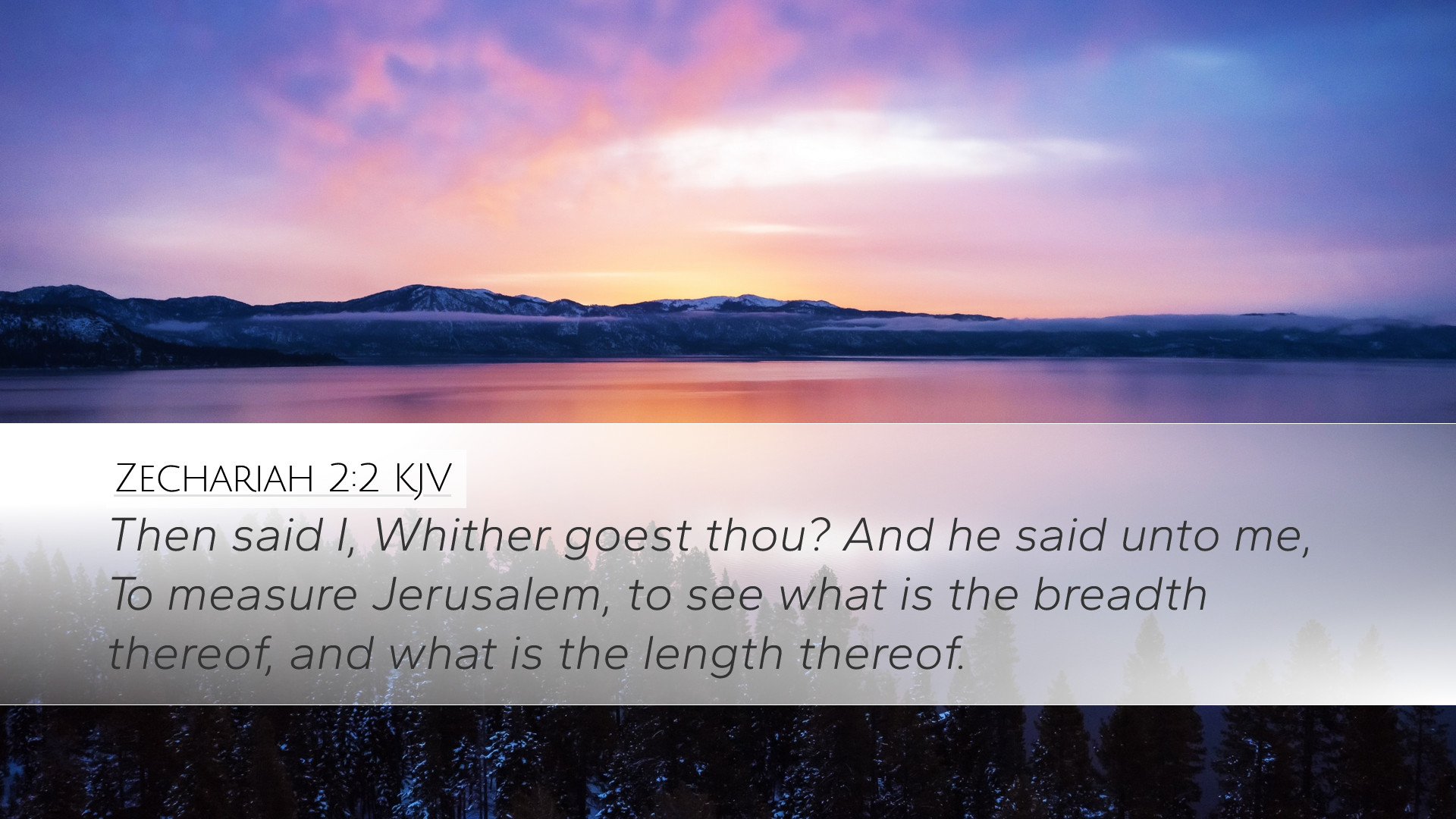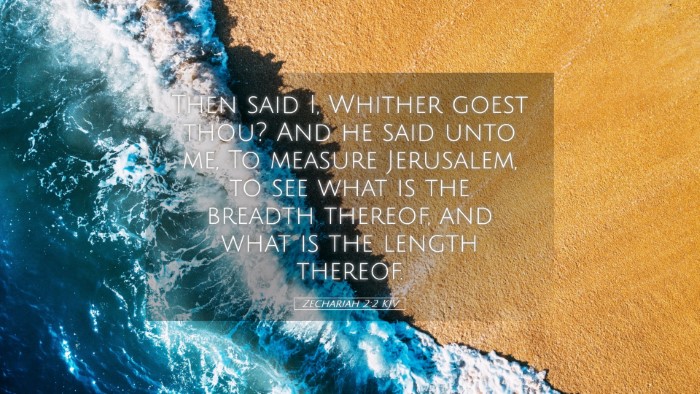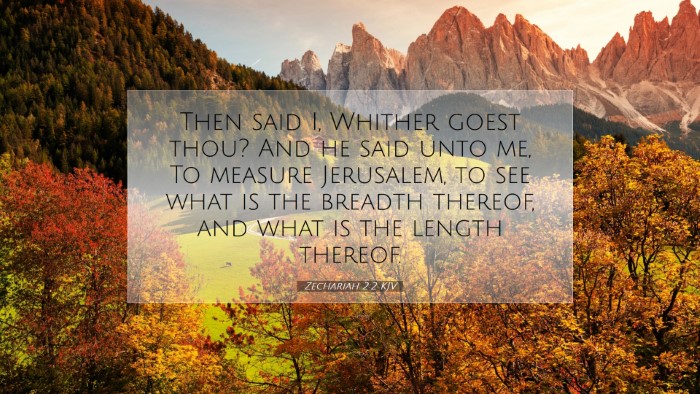Old Testament
Genesis Exodus Leviticus Numbers Deuteronomy Joshua Judges Ruth 1 Samuel 2 Samuel 1 Kings 2 Kings 1 Chronicles 2 Chronicles Ezra Nehemiah Esther Job Psalms Proverbs Ecclesiastes Song of Solomon Isaiah Jeremiah Lamentations Ezekiel Daniel Hosea Joel Amos Obadiah Jonah Micah Nahum Habakkuk Zephaniah Haggai Zechariah MalachiZechariah 2:2
Zechariah 2:2 KJV
Then said I, Whither goest thou? And he said unto me, To measure Jerusalem, to see what is the breadth thereof, and what is the length thereof.
Zechariah 2:2 Bible Commentary
Commentary on Zechariah 2:2
Verse Context: Zechariah 2:2 states, "Then said I, Whither goest thou? And he said unto me, To measure Jerusalem, to see what is the breadth thereof, and what is the length thereof." This verse falls within a prophetic vision given to Zechariah, where he interacts with an angelic being and is shown aspects of God’s plan for Jerusalem.
Introduction
This commentary synthesizes insights from various public domain biblical commentaries, particularly focusing on the themes and theological implications presented in Zechariah 2:2. This includes perspectives from Matthew Henry, Albert Barnes, and Adam Clarke, providing a comprehensive understanding for pastors, students, and scholars.
Analysis of the Verse
The verse begins with a query posed by Zechariah, which invites the reader to consider the importance of the measurement of Jerusalem. The act of measuring holds substantial significance both in a literal and metaphorical sense.
Literal Measurement
From a literal standpoint, the measurement of Jerusalem can be understood as an assessment of its physical dimensions. Matthew Henry notes that this action signifies God's concern for the city, which is His dwelling place. The precise measurements communicate the idea of divine order and assurance regarding the future restoration and security of Jerusalem.
Symbolic Implications
Furthermore, Albert Barnes emphasizes the symbolic implications of measuring as an expression of God’s authority and promise of protection over His people. The act serves as a reminder that Jerusalem is under His sovereign care, and its future glory is assured despite present circumstances.
Adam Clarke adds that the measurement is indicative not only of physical boundaries but also of spiritual significance, representing the people of God and their restoration to a state of communion with Him.
The Theological Significance
In considering the theological insights present in this passage, several key themes emerge:
- Divine Assurance: The measurement serves to reassure the Jewish people that God has not forsaken them. As they return from exile, the establishment of Jerusalem is a sign of God’s enduring promise.
- Covenantal Relationship: The act of measuring symbolizes God’s covenantal commitment to His people. Just as He established boundaries for Israel in the past, He is actively involved in shaping their future.
- Hope and Restoration: This verse embodies a message of hope. It reflects the restoration that God is bringing about in the lives of His people, even as they have faced destruction and exile.
Practical Application
For pastors and students of theology, the implications of Zechariah 2:2 extend beyond the historical context. The themes of measurement, restoration, and divine oversight can be applied to contemporary pastoral care and evangelistic outreach:
- Church Growth: Just as Zechariah's vision illustrates the rebuilding of Jerusalem, church leaders today are reminded to foster growth and restoration within their congregations. They must measure the spiritual growth and discipleship of their members.
- Community Engagement: Understanding the breadth and length also speaks to engaging with the community. Faith communities are called to assess their impact and reach, ensuring that they faithfully represent God’s kingdom.
- Pastoral Care: In providing pastoral care, the divine assurance present in this passage encourages ministers to convey to their congregations the hope of God’s presence and active involvement in their lives.
Conclusion
In summary, Zechariah 2:2 offers profound insights into God's character, His relationship with Israel, and the implications for His people today. By measuring Jerusalem, the prophet not only reveals a promise of physical restoration but also calls God's people into a deeper understanding of their covenantal relationship with Him. This commentary highlights the significance of prophetic literature in conveying a message of hope and assurance, serving as a reminder of God's sovereign authority over His creation.


